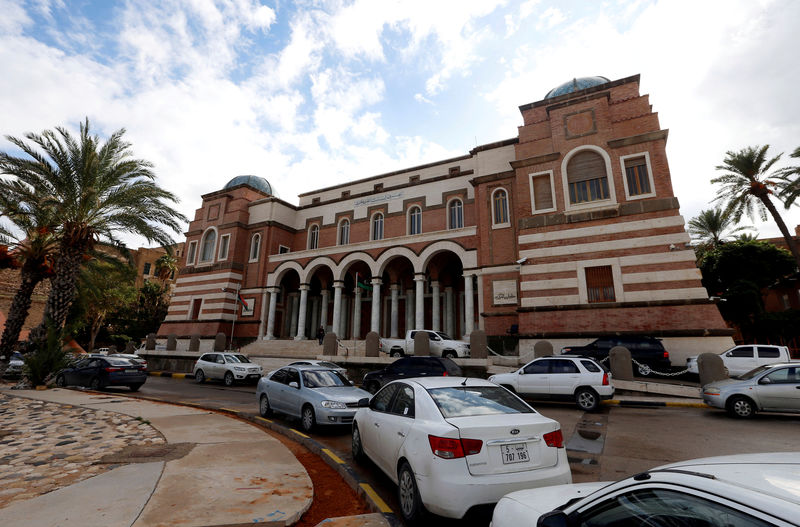By Ulf Laessing
TUNIS (Reuters) - Libya's internationally recognized government and the central bank have failed to agree a national budget for 2019 due to a row over spending priorities, and the wrangling could go on until March, three sources familiar with the talks said.
The conflict is a setback for Western powers and the United Nations, which have been pressing for reforms to tackle a war economy that has enriched armed groups in a conflict stemming from the overthrow of Muammar Gaddafi in 2011.
The World Bank, U.N. and Western powers hosted a meeting in Tunis with Libyan officials last week to prod them to finalize a budget which should have been approved in December.
But no deal was reached, as the Tripoli administration and the central bank could not agree how to use revenues from a new fee on hard currency transactions, among other issues, diplomats as well as the sources familiar with the talks said.
Agreeing on a budget could take as long as to March when the next meeting is planned, they and diplomats briefed on the talks said.
Officials at the Tripoli-based government including the finance ministry as well as the central bank did not respond to phone calls seeking comment.
With no budget, the government can only pay for public salaries and fuel subsidies but not for badly-needed investments to overhaul dilapidated schools, roads and hospitals.
Libya has had no proper budget since 2016 because its internationally recognized parliament is based in the east and supports a parallel administration there. Tripoli is home to the U.N.-backed government but has little power.
Since then Western countries and international institutions have been brokering meetings between Tripoli officials, the central bank and a senior lawmaker from parliament.
These efforts also include a tactical agreement with the eastern government whose salaries are paid by the central bank -- the United Nations wants to keep an uneasy balance between west and east while trying to prepare Libya for elections to unify the institutions.
FEE
The budget row arises from a conflict about how to spend a new 183 percent fee imposed on private currency transactions in October, the sources said.
The Tripoli government and central bank had imposed the fee under Western pressure, amounting to a de-facto devaluation to lower the spread between official and black market dollar rates.
Armed groups have benefited from the spread as they, thanks to their power, get cheap central bank dollars and sell them on the black market.
The Tripoli government wants to use the fee for development but the central wants to pay back debt, sources said.
There would more room to spend this year because oil revenues rose by 78 percent to 24.5 billion dollars in 2018 as wave of blockage of oilfields ebbed, halving the deficit to 4.6 billion dinars ($3.32 billion).
The row has been complicated by a power play inside the Presidential Council running the Tripoli administration.
Three council members accused Prime Minister Fayez al-Serraj of seeking to "control power and decisions, (pursue) unstudied policies and irresponsible behaviors," a statement said. It warned of state collapse.
Diplomats said that row made it more difficult for officials to agree on the next reforms such as reducing fuel subsidies which also benefit armed groups who smuggle cheap fuel abroad.
